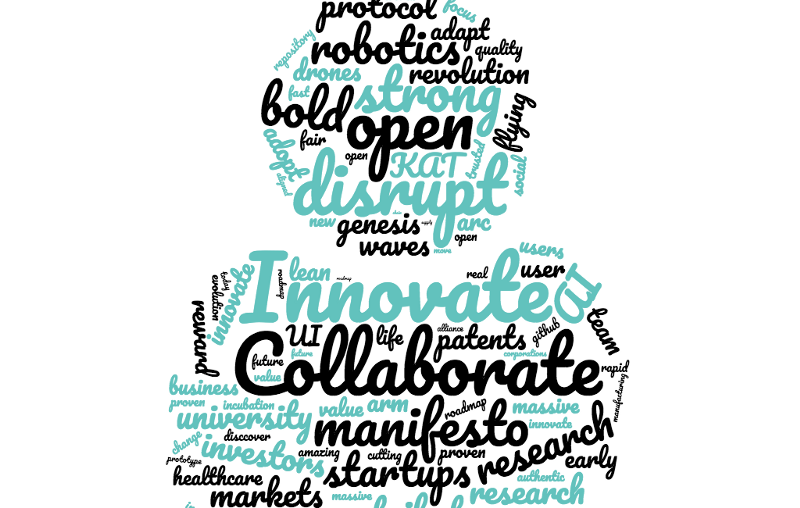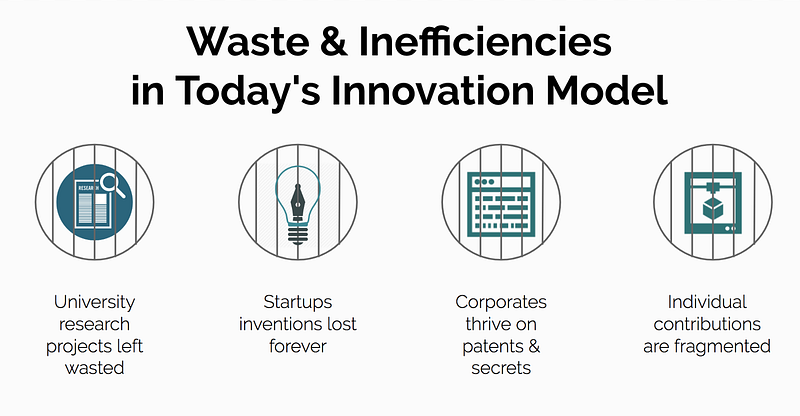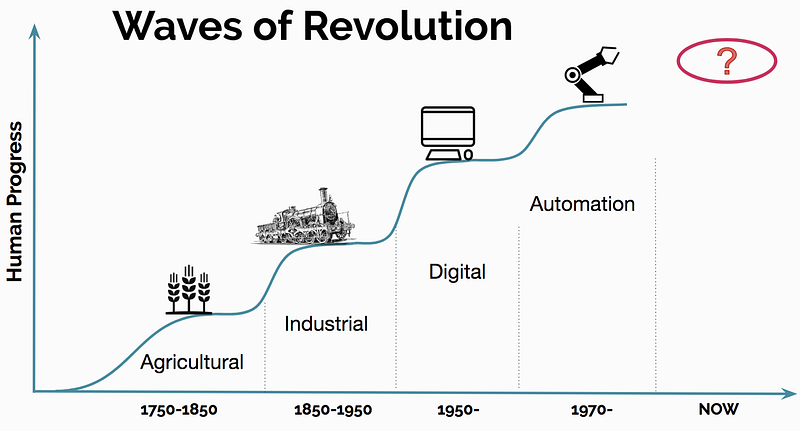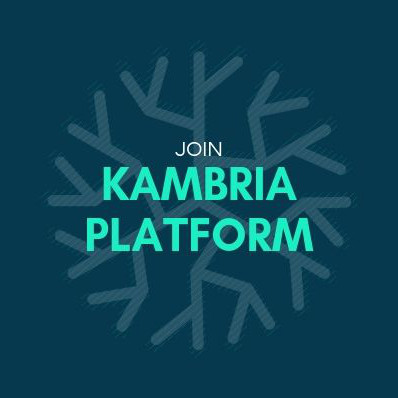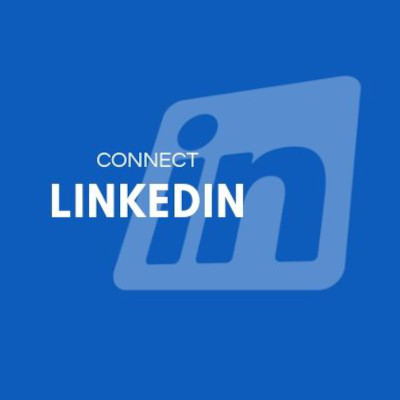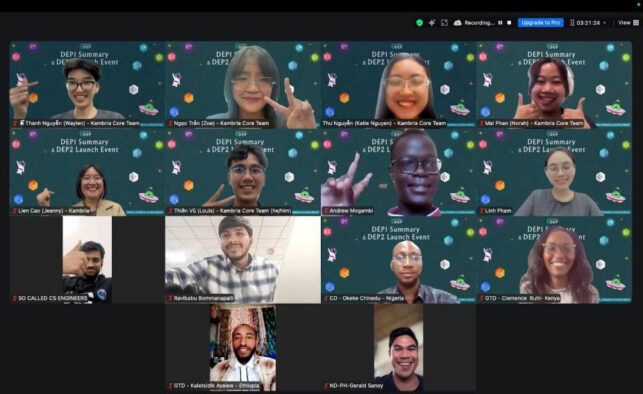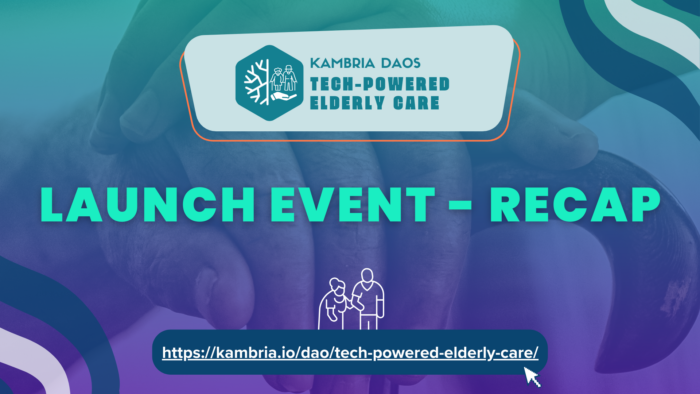Developing our Open Innovation Manifesto
Over the last 12 months, following the lean startup mentality, we have been iterating and developing our Kambria platform, and presenting it to various entities for early feedback. In the process of doing that, we realized we are onto something big. We got excitement across the board, from big corporations, to startups, universities, and individual developers. The world is moving towards being much more open and collaborative. Even big corporations such as GE, Samsung, NASA and Lego have been pushing for open innovation. Open innovation stands for “a more distributed, more participatory, more decentralized approach to innovation [since] no company, no matter how capable or how big, could innovate effectively on its own.”
This led us to a key insight: How we innovate is just as important as what we innovate on. And indeed, if we look deeply into how innovations are made today, we can see the scale of waste and inefficiencies in the system. Billions of dollars worth of technology are left unutilized in universities’ research projects. Many startups raised a huge amount of capital and invented really cool technology, but all that is lost when the startups fail. Companies pour billions into R&D, but then build a moat of patents and secrets around their inventions so no one else can innovate. Smart teams and individuals from all over the world have pieces of the puzzle but no way or no incentive to share.
We believe this can change with the Kambria open co-innovation protocol and platform.
Imagine a world where innovations:
- Incentivize people and facilitate their collaborations to innovate together, hence the term co-innovation
- Are open, inclusive and accessible to everyone including the most passionate and talented minds
- Driven for the greater good of humanity rather than the profits of a few companies, and
- Are exponentially more impactful due to network effect.
How Do We Do This?
We start with an open robotics platform that is similar to Android or Linux but would include both hardware and software components. Over time we will grow this into a network of thousands of repositories, spanning across many technology verticals, not just robotics. The repositories will be semantically linked to each other for better access and more effective collaborations. For example, self-driving cars will share certain technology components with autonomous robots.
We developed Kambria with blockchain for several reasons:
- Our innovations can remain open and available to humanity forever.
- Contributions to Kambria will be transparent, and immutable.
- Attributions to contributors will be fair, transparent, and decentralized.
All technology on Kambria will be open and free to use for personal and R&D purposes, with the option for a licensing fee for commercial and enterprise purposes. We developed an elegant “micro-licensing” system to ensure that commercialization from this pool is easy and predictable. Anyone, from big companies to startups and individual entrepreneurs, can license out the entire stack of technology without the burden of legal paperwork and negotiations with every single contributor. At the same time, the value flow network on blockchain ensures that their licensing fees flow back fairly and transparently.
One of the biggest challenges in building such a platform is how to incentivize contributions to the platform. If we rely only on goodwill or legacy, we won’t get too far or it would take a really long time to gain a critical mass. This is where having our own token economics will make a huge difference.
Our token, KAT, will help us bootstrap the community and technology base very quickly. We can acquire technologies from universities, startups, and individual contributors in exchange for KAT. It also allows our token holders to invest in projects that they find most compelling. This gives developers not only additional financial support, but also the provides signals for market demands. KAT also will allow us to run a really interesting decentralized protocol we have developed to power Kambria.
The protocol spans across three key areas:
- Governance: Token holders can stake their tokens to elect a set of experts who will help with governance as well as growing of the “technology trees” on Kambria.
- Attribution: Contributions into Kambria will be evaluated automatically so that attributions will be rewarded fairly.
- Protection: Community can collectively ensure licensing agreements are upheld by partners.
This protocol is comprehensive and has lots of technical details. We will discuss how it works in our next post.
Through this protocol, we are able to reward sharing, correct attribution, and penalize free-riders. We also solve the really challenging problem of pricing derivative work — e.g. If John makes an arm, no one uses it. But if Mary adds a special gripper then 10,000 copies could be sold. So how would we reward John and Mary? Solving this problem is what enables pre-emptive contribution of technology. Developers can have that peace of mind when they contribute and open their tech on Kambria, knowing that they will not be taken advantage of.
How Do We Go Forward?
The Kambria protocol allows us to scale broad social impact on a multitude of verticals, including robotics & AI, mobility, and environment. Our initial focus is on the robotics vertical where we have proven our value. The industry is nascent and ripe for reinvention given so much fragmentation and siloing, with problems spanning hardware, software, firmware, manufacturing, and supply chain.
We are building robotics labs around the world, partnering with top universities in the space. We will strategically acquire different technologies that are complementary of each other to create fully integrated solutions that can be readily used to tackle various use cases. And the great thing about our protocol is that the value of each component will be determined automatically and rewarded fairly. We will provide education programs at these labs to grow a strong community of AI and Robotics researchers and developers.
We’re also planning robotics competitions in big cities around the globe with social impact missions such as cleaning the streets, cleaning ocean, waste recycling, and senior care. We want to support a bold grassroots movement of talented developers who are passionate about creating new technology that can help improve the quality of life. And we want to connect token holders with these projects so that they can support the social causes that resonated most while still retain the potential financial gains.
What Other Markets Can We Address?
We’re eyeing for large-scale collaboration and disruptions across many markets. Check out a few trends from which our platform users can capture value:
- The global market for elderly care services is expected to reach $1.7 trillion by 2015, according to Persistence Market Research. The total population of those 60 years or older will reach 2.1 billion by 2050, an important social trend on the minds of global leaders.
- Demand for organizational video conferencing continues to grow markedly as teams want to connect and collaborate with remote colleagues while cutting operational costs.
- By Q4 2017, global investments made in learning technology companies surpassed $8 billion. But long sales and product adoption cycle is a drag on edtech services.
- Cities have a burgeoning demand for services like cleanup and public safety, but tight budgets are straining the capacity of municipal governments.
- By 2020, the drones market could grow to $100 billion, which ranges from personal home security to first responder services to military applications.
Our world is full of amazing technology that has already transformed our lives. But our future as a species depends on our ability to continue to innovate and create new technology. With Kambria, we aim to redefine and turbocharge the innovation process. Please join us in this next wave of revolution, by being early adopters of the platform and participating in the growing Kambria community.
Together, we can build an ecosystem in which enthusiasts, universities, startups, and big corporations can come together and pave the way for the next wave of innovations to solve world challenges and provide value to billions of people across the world.
Thank you for reading our Open Innovation Manifesto. If you'd like to learn more about what we're building at Kambria, please go to the About Kambria section of our blog.
The Kambria Team
Links
Website: https://kambria.io/
Whitepaper (ENG): https://kambria.io/Kambria_White_Paper_v1.1.pdf
Telegram (ENG): https://t.me/kambriaofficial
Telegram (KOR): https://t.me/KambriaKorea
Telegram (VIE): https://t.me/KambriaVietnam
Telegram Announcement Channel: https://t.me/kambria
Twitter: https://twitter.com/KambriaNetwork
Facebook: https://facebook.com/KambriaNetwork
Reddit: https://www.reddit.com/r/KambriaOfficial/
Email: info@kambria.io
